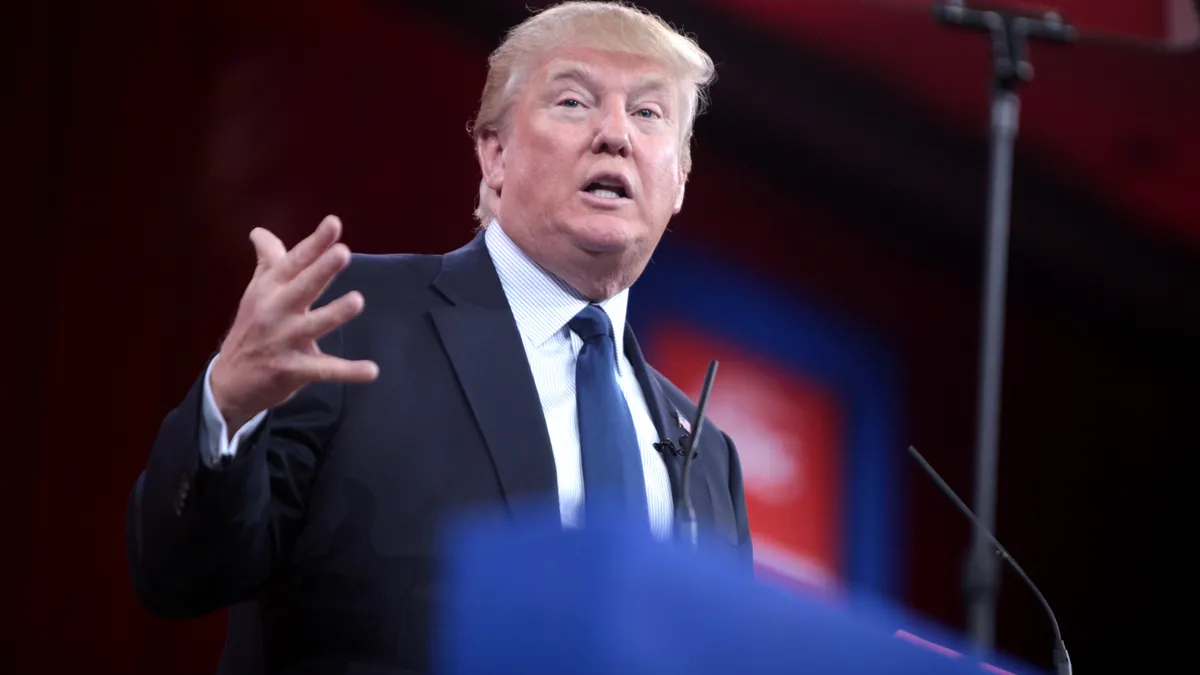Dive Brief:
-
Leaders from across the higher education sector are criticizing President Donald Trump’s executive order banning diversity training programs the administration deems "divisive."
-
College administrators and legal experts say the directive, which could apply to public and private institutions, has the potential to erode initiatives designed to combat racism and sexism. It could also curb academic freedoms.
-
However, enforcing it could prove difficult, and colleges and universities may have trouble figuring out whether they’re in compliance.
Dive Insight:
Trump issued the executive order earlier this month as an expansion of a similar restriction on government employees. It bars federal contractors from using training that "inculcates in its employees any form of race or sex stereotyping or any form of race or sex scapegoating."
The order also applies to federal grant recipients. It states that they can’t use that money to "promote" what the White House considers "divisive concepts." Those include the idea that an individual, "by virtue of his or her race or sex, is inherently racist, sexist, or oppressive, whether consciously or unconsciously" and that anyone "should feel discomfort, guilt, anguish, or any other form of psychological distress on account of his or her race or sex."
Colleges have taken exception to the order. University of Michigan President Mark Schlissel said in a public statement that it violates free speech rights and could undermine efforts to acknowledge and address systemic racism. Officials at Southwestern College, a two-year school in California, similarly said in a statement that discussions of race and sexism are not inherently divisive.
As the U.S. broadly reckons with racism, colleges are examining their own prejudicial histories. The U.S. Department of Education recently opened an investigation into Princeton University after its president publicly said the institution continues to be steeped in systemic racism, a probe opposed by top administrators at dozens of colleges.
Though the order allows for academic debates on these topics — if the grantee doesn’t endorse a particular viewpoint — it could still limit free expression, the Foundation for Individual Rights in Education, a civil liberties watchdog, said in a statement.
Colleges should review diversity and inclusion training materials for employees to ensure they don’t violate the order, according to guidance from law firm WilmerHale. They should also check the conditions of federal grant money against the new order.
WilmerHale noted, however, that some key terms in the order are ill-defined, and so institutions may have difficulty determining whether they’re obeying it.















